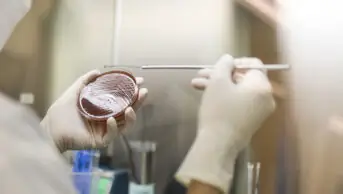
Shutterstock.com
Four point-of-care diagnostic tests for urinary tract infections (UTIs) have been described as “showing promise” in early draft guidance from the National Institute for Health and Care Excellence (NICE).
The tests can all be completed within an hour and do not require the use of a laboratory. However, NICE said it needs more data on the accuracy of the tests in detecting and identifying bacteria and testing for antibiotic susceptibility before it can recommend the technologies for use in the NHS.
Data from the NHS Business Services Authority show that around one fifth of antibiotics prescribed in England in 2019/2020 were for lower urinary tract infections, 7 million prescriptions out of a total of 31.4 million prescriptions. When publishing one of its first Early Value Assessments on 21 March 2023, NICE said wider use of such diagnostic tests for UTIs could help in the battle against antimicrobial resistance (AMR).
The NICE committee also said it wants to see more data on how using the four technologies, which take between 2 minutes and 45 minutes to produce a result, would affect antibiotic prescribing.
The four tests are: Astrego PA-100 analyser with the PA AST panel U-0501 (Sysmex Astrego); Uriscreen (Savyon Diagnostics); Lodestar DX (Llusern Scientific); and UTRiPLEX (Global Access Diagnostics). The final two technologies are awaiting regulatory approval.
In July 2022, The Pharmaceutical Journal reported that NHS England halted work to roll out a nationally funded pilot to refer patients to community pharmacists for treatment of uncomplicated UTIs because of concerns around AMR.
NHS England and NHS Improvement’s AMR programme board reviewed a proposal for the pilot to develop an enhanced service provided by community pharmacies, following “concern about the risk of increasing the unnecessary use of antimicrobials and the resulting impact on AMR”.
Mark Chapman, interim director of medical technology and digital evaluation at NICE, said: “There is a need for new tests that can accurately identify whether an infection is present. Our Early Value Assessment project has identified that these four tests could help meet that need.
“Soon we expect to have a fuller and more detailed picture of the tests’ accuracy and potential benefits and will be able to make a further recommendation on their use in the NHS.
“One of the most exciting aspects of these technologies could be their ability to maximise the use of antibiotics where most effective.”
Alastair Buxton, director of NHS services at the Pharmaceutical Services Negotiating Committee, said:
“Use of innovative and cost-effective new point-of-care testing for UTIs could be a good way in which community pharmacies could support patients to access appropriate and timely treatment, while ensuring good antimicrobial stewardship and reducing burdens on general practices. We can see how such technology could, in the future, be part of a fully funded Pharmacy First service, utilising patient group directives and independent prescribing.”
The NICE consultation on the draft guidance closes on 30 March 2023.


